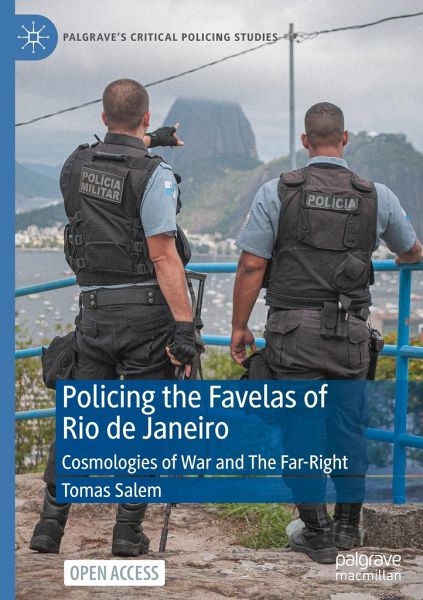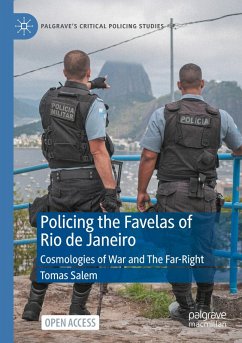
Policing the Favelas of Rio de Janeiro
Cosmologies of War and The Far-Right

PAYBACK Punkte
19 °P sammeln!
This book offers a unique look into the world of policing and the frontline of Brazil's war on drugs. It analyzes the tensions produced by attempts to modernize Rio de Janeiro's public security policies. Since the return of democracy in 1985, Rio's police forces have waged war against armed drug gangs based in the city's favelas, casting the people who live in these communities as internal enemies. In preparation for the Olympics in 2016, the police sought to 'pacify' the favelas and their populations through the establishment of Pacifying Police Units (UPPs) in many of the city's favela commu...
This book offers a unique look into the world of policing and the frontline of Brazil's war on drugs. It analyzes the tensions produced by attempts to modernize Rio de Janeiro's public security policies. Since the return of democracy in 1985, Rio's police forces have waged war against armed drug gangs based in the city's favelas, casting the people who live in these communities as internal enemies. In preparation for the Olympics in 2016, the police sought to 'pacify' the favelas and their populations through the establishment of Pacifying Police Units (UPPs) in many of the city's favela communities. Drawing on eight months of ethnographic fieldwork with the police, this book follows officers across the institutional hierarchy in their daily activities, on patrol, and during training. Tracing the genealogies of contemporary forms of policing-as-warfare through the notion of 'colonial war' and 'cultural war', it highlights the material and ideational dimensions of war as a cosmological force that shapes Brazilian social relations, subjectivities, landscapes, economies, and politics. It draws on the Deleuzian notion of 'war machine and state dynamics' to show how practices of elimination co-exist with attempts to transform favela territories and their people and analyzes the link between the moral universe of policing and right-wing populism in Brazil. Through rich and nuanced ethnography, it offers a critical perspective on militarized policing and 21st century forms of authoritarianism.














